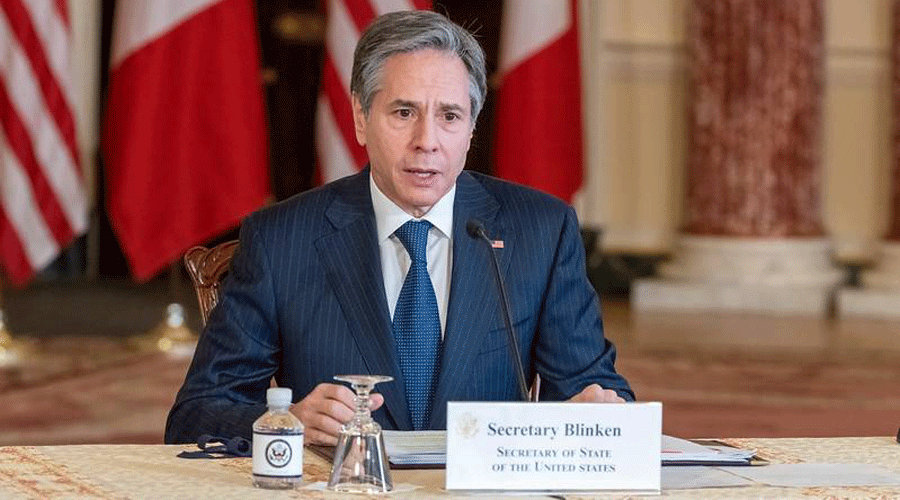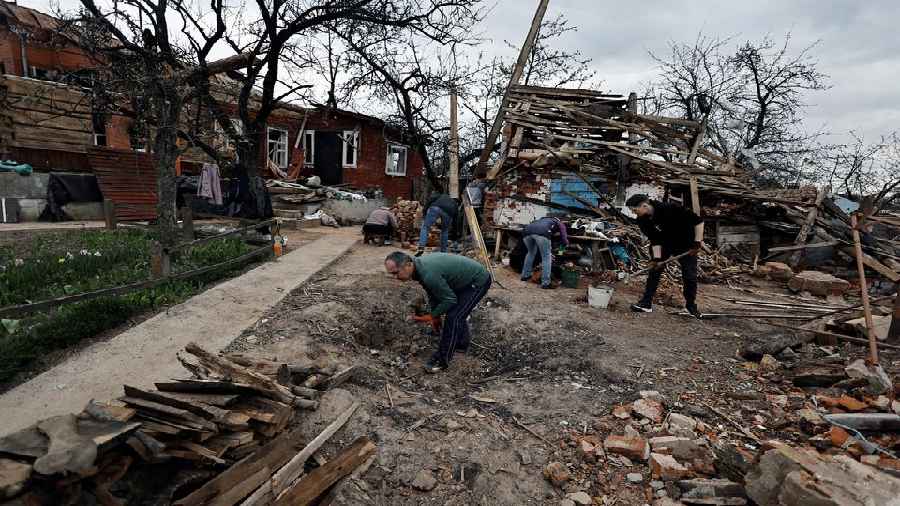India, China and Pakistan on Thursday again refused to join the majority of the world in the United Nations General Assembly to demand the immediate and unconditional withdrawal of Russia from Ukraine and cessation of hostilities even as US secretary of state Antony Blinken said Washington had turned to Beijing and New Delhi in the past year to use their influence with Moscow to pull back from nuclear brinksmanship.
Responding to a question in an interview with The Atlantic, the multi-platform publisher, on the fears of Russian President Vladimir Putin exercising the nuclear option, Blinken recalled: “When Ukraine launched a counter-offensive last spring and had very significant success, there was some concern that Putin might react even more irrationally and there was language coming out of Moscow that suggested that he would look to the use of tactical nuclear weapons….”
Blinken added: “What we did in that case was not only message him very directly — I was engaged with my counterpart Mr Lavrov, others were engaged with theirs — but we urged and, I think, successfully other countries that might have little bit more influence with Russia these days like China but also other countries like India to engage him directly about their absolute opposition to any use of nuclear weapons. We know that they conveyed those messages and I think that had some effect.”
On India behaving in “ways reminiscent of the old non-aligned bloc”, Blinken referred to India’s longstanding relationship with Russia and the Soviet Union before that, adding that it is challenging to break this off in one fell swoop.
“It’s not flipping a light switch, it’s moving an aircraft carrier. India for decades had Russia providing military equipment to it.... But what we have seen over the last few years is a trajectory away from relying on Russia and moving into partnership with us and other countries….’’
On Thursday, ahead of the Russia-Ukraine conflict entering its second year on Friday, India, China and Pakistan were among the 32 abstentions on the UNGA resolution which was adopted with 141 of the 180 member countries voting for and seven rejecting it.
Iterating that dialogue and diplomacy are the only viable ways out of the conflict, India’s ambassador to the United Nations in New York, Ruchira Kamboj, said: “While we take note of the stated objective of today’s resolution, given its inherent limitations in reaching our desired goal of securing lasting peace, we are constrained to abstain.”
In the explanation of the vote to abstain, India raised three questions: “Are we anywhere near a possible solution acceptable to both sides; can any process that does not involve either of the two sides ever lead to a credible and meaningful solution; and has the UN system, and particularly its principal organ, the UN Security Council, based on a 1945 world construct, not been rendered ineffective to address contemporary challenges to global peace and security?’’
China, in its intervention during the UNGA discussion on the resolution, underscored that “the legitimate security concerns of all countries should be taken seriously”.
In view of the nuclear overhang, China said: “Nuclear weapons cannot be used. Nuclear war cannot be fought. All parties should join together against the use or threat of use of nuclear weapons, prevent nuclear proliferation and avoid a nuclear crisis.”
Critical of the weapons support being provided to Ukraine by the West, China added: “One year into the Ukraine crisis, brutal facts have offered ample proof that sending weapons will not bring peace, adding fuel to the fire will only exacerbate tensions….
“We urge the countries concerned to stop abusing unilateral sanctions and longarm jurisdiction. Instead, they should act in a way conducive to de-escalation. The international community should strengthen coordination and cooperation in energy, finance, grain trade, and transportation, and work together to mitigate these spillover effects of the crisis.”












